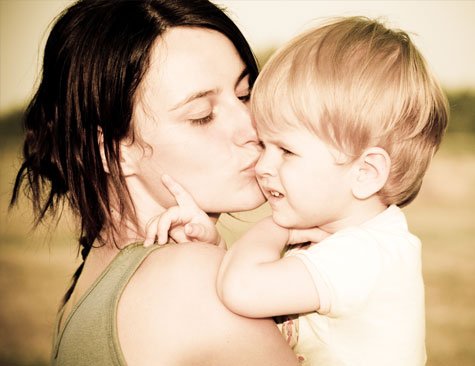
Motherhood is an experience that every woman much desires. She loves to take care of her child as it gives her much pleasure. It is often understood that a mother is very close to the child. After all, she has given birth to him or her and knows what is good for the child. No doubt, the father also has an important role to play in the upbringing of the child, but the mother is full of love and affection for her child whom she has kept close to her heart for 9 months.
 A child needs his or her mother. The affinity to the child is much there as it is the mother who bears the child. It is she who has undergone the pain of delivery. Even if it is caesarean, it is her body which is cut open to remove the newborn. It is much sacrifice on her part as a woman likes to look good at all times.
What are the reasons for a mother to be close to her baby?
- A mother can tell when her baby is experiencing discomfort. The moment the baby cries, the mother immediately starts cajoling her. This instinctive response is due to the strong emotional bond formed through months of pregnancy and the continuous care post-birth.
- The baby is comfortable in the arms or lap of her mother. He or she feels secure. The baby can feel the presence of her mother. The moment the baby is taken into the arms of the mother, he or she stops crying. The baby knows that the mother will protect her from any harm that may come by. This sense of safety is crucial for the emotional and psychological development of the child.
- The mother breastfeeds her child. This brings her close to the baby. The baby enjoys the closeness to the mother and feels very contented after having the feed. He or she looks up to the mother and knows that the latter cares for him or her. Additionally, breastfeeding has been shown to have numerous health benefits for both the baby and the mother.
- Traditionally, it is the mother who gives a bath to the child and dresses her up. Nowadays, since women are working even the father takes on the responsibility of looking after the child. Sharing these responsibilities strengthens the familial bonds and ensures a well-rounded environment for the child’s growth.
- Educating the child is also a responsibility which both the parents take on. Housewives tend to devote more time to the child as they are at home. Even working mothers also ensure that their child’s education is not neglected. Even though they may have work outside the home and chores to do at home, they take some time off from their busy schedule to teach the child. The active involvement in the child’s education fosters a love for learning and creates a strong foundation for future academic pursuits.
- Health care of the child is also something a mother as well as the father pay much attention to. The mother ensures that her child is well fed and the nutrition levels are maintained. Regular health check-ups, timely vaccinations, and attention to the child’s mental health are aspects that parents, especially mothers, vigilantly oversee.
- The warmthness that the child experiences by being close to the mother keeps him or her happy. The child likes to be physically close to the mother. This physical closeness not only provides comfort but also aids in the development of a secure attachment style, which can have positive implications for the child’s future relationships.
No other person can replace a mother in taking care of a child. The loss of a mother can be devastating emotionally and physically to the child. A step-mother may not feel so much concern for the child as the real mother would feel.
A mother, therefore plays a vital role in the up bringing of the child.